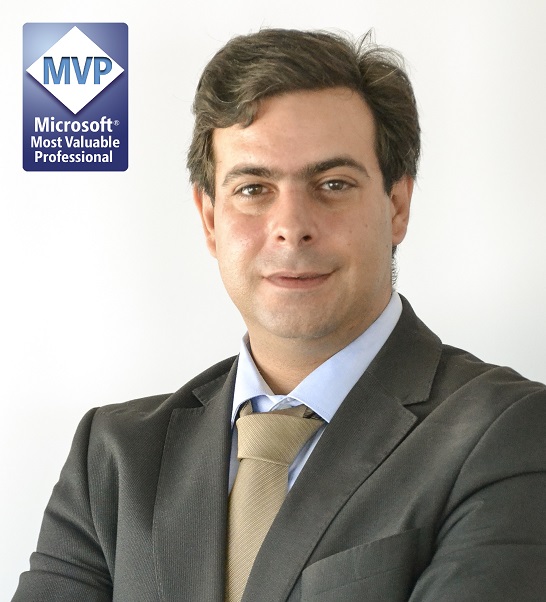With the huge transition to cloud technologies over the past couple years, there are some major opportunities for MSPs. Alex Fields breaks down his three top opportunities MSPs should be looking into. The first opportunity Alex shares with us is modernizing and management. The second is cybersecurity and compliance management, and the third which probably represents the largest opportunity in terms of new revenue is helping businesses to modernize their workflow. Watch and learn as Alex goes into depth on each of these opportunities and what you should be doing.
Video Transcription
Harry Brelsford 0:07
Hey Nation nation back with Alex Fields the man you’re a nomad. I don’t want to call you a gypsy but you’re a nomad. Where are you today? You’ve been? You’ve been roman. Where are you today? And let’s jump right into it after that.
Alex Fields 0:20
Yeah, I am probably probably close to the center of the country. I’m in the heartland, so right outside of Omaha, Nebraska. And so I’m just holed up here at my parents house for a little bit. While we look for a new home somewhere in the United States, I my my search area is fairly large. It’s somewhere between the East Coast and the West Coast. So anywhere in there, but we haven’t picked a place yet.
Harry Brelsford 0:43
So there we go. Well, hey, you did a recent blog where you had a couple of talking points for MSPs go.
Alex Fields 0:50
Oh, yeah. So you know, I think that there’s really three major opportunities for MSP providers, folks who are, you know, traditionally servicing, you know, small and mid sized businesses, obviously, there’s been such a huge transition to cloud technologies. And Microsoft 365 is obviously a really big part of that. But there’s also a lot of other cloud apps and stuff like that, that tie into that environment, and especially just all the working from home, you know, especially with, you know, the situation with COVID and stuff over the last couple years. So, you know, what are those opportunities? Well the first is pretty simple. It’s kind of like thinking about the traditional infrastructure that we used to manage, and then just managing that in a more modern way. So if you’re, you know, used to have your agents on endpoints that are distributed around your customers, you would still need to manage those endpoints. But there’s these new tools now that we have in the Microsoft space. And we’re starting to see more and more of that vision come to fruition, with tools like Microsoft 365 Lighthouse, that’s a little bit newer. And if folks aren’t aware, there is a public preview available now, for that tool, which will allow you to manage all of your users and endpoints across all of your customers that are tied to Microsoft 365 subscriptions. So that’s really cool. And there’s quite a bit in there already. But they’re going to continue to put a lot of development into that tool. And so that can easily displace other tools, I believe in the future. And getting on that platform now, I think is a good idea to start understanding what you can do and what some of the limits are. So that’s the number one thing would be that modernizing the management, that’s the first. Okay, that’s the first opportunity modernizing management. The second opportunity that I would highlight is, you know, cybersecurity and compliance management, which is a separate thing, in my opinion, I think that is it, you know, it goes beyond managing assets. And, you know, it goes a little bit further in where you’re maybe looking at a compliance body, some people work in, say, like government space, and they have to, you know, government contractors and stuff like that they might have to adhere to cmmc. other industries might have to adhere to, you know, HIPAA requirements, or they might have to, you know, adhere to just a basic cis security framework in order to work with certain, you know, businesses and do transactions with certain businesses, if you’re in the financial services industry, if you’re in the healthcare industry, and so forth. And so having, you know, a system in place where you can manage against those types of things are really important, obviously. And of course, there’s tons of tools in the Microsoft space related to cybersecurity. And there’s, yeah, and then there’s, there’s more on the way too, so that’s going to be some interest, especially with regard to SMB. So we’ll have some more things to talk about soon with that, I believe. But that is a key area of interest for a lot of a lot of MSPs out there trying to get better at cybersecurity. And I would also, you know, mentioned the compliance with with along with that, I think that’s going to become more and more important. And we’re also seeing in the SMB space. You know, what we’re seeing is there’s there’s some self organization happening around like, maybe we’re, we should try to create some kind of draft legislation because like, we assume that there’s legislation coming eventually with all the ransomware and everything that’s been happening, so why not be part of that right. And so there’s a there’s a group of individuals who have kind of gotten together around that there’s a Facebook group out there, I believe that was started by Amy Babinchak and yeah, there folks got on board with that Karl Palachuk . Yep, yep, yep. Exactly. And so now we’re, we’re talking about that. So that’s kind of interesting. And that will definitely play into the cybersecurity compliance space. And then the third opportunity is, I think, is the one that is probably the most exciting, and it’s got the fewest people seriously, like all the MSPs I talked to and I talked to easily 100 MSPs, you know, a month and it’s like, all I do is talk to him. And so the fewest number of MSPs looking at doing this it but it’s crazy because it’s probably represents the largest opportunity in terms of new revenue and that is helping businesses to modernize their workflow, using the new tools, like a lot of people don’t realize that there when they moved from, you know, their older servers and stuff into Microsoft 365, that upgrade was as significant as moving from like pencil and paper Ledger’s to, you know, an electronic accounting system is that, you know, it’s like, it’s a massive shift, and there’s a lot there that they’re not using yet. And so that journey of digital transformation, helping people to get more out of the applications they use, and that’s something that’s really, that’s a lot more valuable, because it is adding value to their business is helping to, you know, take work off their plate, make their job easier, give them capabilities that they may not have even realized they had or didn’t ever had before. So they are more willing to pay, you know, for that type of service. And it’s not really seen as a commodity in the same way that like, oh, taking care of the computers is right, like that’s, that’s kind of a commodity kind of a low value thing now, and it’s not, that’s not where the money’s at. Right. So that’s kind of the three, kind of the three tiers that I would recommend, you know, managed services providers focusing on especially that last tier, which again, is I’d still see the fewest number of service providers, really advancing that type of a practice.
Harry Brelsford 6:17
Alright, man, well, I sure appreciate you helping us keep it real. You know, I just died mob mob all locked up in this little home office and kind of lose touch with what’s going on out there. So appreciate you joining us and well, we’ll talk to you next time. Lord knows where you’ll be.
Alex Fields 6:35
Yeah, right. All right.
Harry Brelsford 6:37
Thank you, Alex.
Alex Fields 6:38
Cool.































